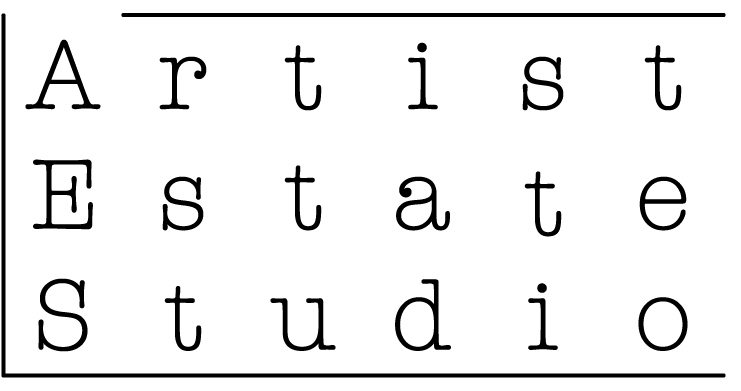Frank Owen, trailblazing innovator
Read on Two Coats of Paint.
I first came to know the work of Frank Owen over two decades ago through the sculptor Joel Perlman. I stepped off the elevator at Perlman’s studio on West Broadway and immediately encountered an Owen painting. It seemed fitting to discover such a physical painter as Owen through a sculptor. Only recently I learned that the title of that painting was Augmented Position, also fitting insofar as Owen has challenged and changed the way one can experience painting. The proof is in his current show “Retrospection,” on view at Nancy Hoffman Gallery.
Owen’s paintings have always been about expanding the painted field. He arrived in New York City in the 1970s and recalls with wonder living and working in SoHo during that period. He was among the few “painting is dead” deniers and took to redefining painting through process, addressing the picture as a space defined not just by a height and width but also depth. To convey this, he developed and mastered the unique technique of building a painting inside-out or in “verso,” like sculpting via mold making. The process dates back to when artists carved into the surface of clay, poured paint on that surface, then meticulously pulled back the “skin” of the painting, stretching it to canvas. To learn more about Owen’s process, see Alexi Worth’s interview with him from 2020.
Process for Owen was not a means to a preconceived end, nor a response to Richard Serra’s molten throwns or Lynda Benglis pile pours. Instead, Owen was taking a strong position on the act of looking. Just as Mark Di Suvero rescued us from Minimalist sculpture by introducing his thrusting and sprawling dynamic tensions, Owen offered a new way of experiencing painting through what could be called tensile articulation.
With inspired inventiveness, he engineered a way to harness the expressive nature of the medium, capturing it in a surface plane with layered depth. Any number of elements could cohabit there in floating stasis. Paintings thus became scaffoldings of shapes compressed in layers of paint as if preserved like fossils in amber.
When a fire consumed his SoHo loft in the 1980s, Owen headed for the hills of Keene Valley in the Adirondack Mountains. Distilling the lifeforce from nature continues to be the dominant theme in his work.
In Calipers of the King Fisher, composed of linear and arching shapes, Owen captures nature and a new kind of paleo-kinetic vibe. Rough-hewn with layers upon layers of jut and jab, the painting fuses constructed and fluid elements of abstraction with subtle yet stern emotion. Shapes found in the painting were often generated on his wife’s desktop computer, then made into posterboard templates which could be reused.
Three decades later he painted Gala, which consists of multiple sheets of chromatic industrial polyethylene with premanufactured painted elements, collage, and glue. Here Owen relies heavily on an exhaustive combination and recombination of prefabricated modules of visual information.
Embracing the bold and the garish, his recent work is centered on a series he calls the Venetians – paintings that bustle with deep, rich colors, patterns emphasizing surface, and layers playing on the effects of light. On view are over a dozen compelling paintings in evolved from this series, all measuring 50 x 40 inches, different but related. Their juxtaposition is repetitive and coercing on purpose as Owen charged himself in these recent paintings, to draining himself of everything he could think to do with the intention of exhausting the viewer.
Undulating with color and texture. Amplify and Gala, and Southwest and Elements, are paired. Each generates a zany equilibrium and idiosyncratic rhythm. Owen creates swirling spaces with forms, tendrils, fractured grids, and looping lariats. Each has a distinct veil of color with a jagged armature conjuring worlds within worlds that move in art-historical orbits near those established by surrealists like Max Ernst and Roberto Matta.
What Frank Owen achieves is a cascade of suspense without definition. That, I feel, lies at the heart of his poetic disposition. “Retrospection” offers both his mind-blowingly chromatic new paintings and a sampling of his career defining old ones. What is revealed is a trailblazing innovator of non-representational art. His work references and aggregates time itself.
“Frank Owen: Retrospection,” Nancy Hoffman Gallery, 520 West 27th Street, New York, NY. Through September 2, 2022.
About the author: Jason Andrew is an independent curator and writer based in Cypress Hills, Brooklyn. Follow him on Instagram: @jandrewarts
